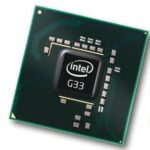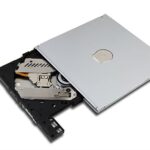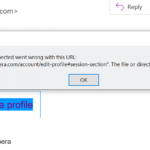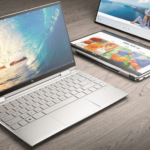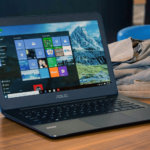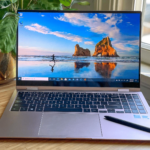Compared to ordinary laptops, its gaming counterparts use a lot of electricity. They run heavy software and games with the highest resolutions to provide better performance and visuals. The user’s experience is highly influenced by the quality of the internal hardware, such as the GPU, CPU, and power adapter.
Gaming Laptops are generally built using powerful CPUs, GPUs, and other components. Most of the time, the gaming laptops will come along with two cooling fans. Also, the RGB lighting effects are there. So, all these extra things contribute to extra power consumption in gaming laptops.
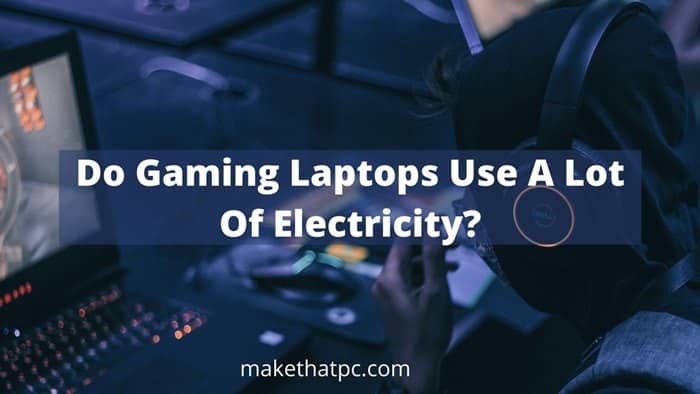
How much power do gaming laptops consume?
Gaming laptops do consume a lot of electricity as they are used for heavy purposes. The most powerful gaming laptops consume roughly 160-180 watts of electricity every hour. Although that is a rough estimate, there are many factors that affect power consumption. Let’s take a look.
Factors that affect the electricity consumption levels
Most individuals attach peripherals like keyboards, external storage drives, and printers to their laptops in addition to the internal gear. These and other factors also contribute to the increased energy consumption of your device.
However, the most considerable influence is the type of gaming laptop you use. Compared to the older variants, the newer models promise more electricity savings and higher performance output. These are the top factors that can influence electricity consumption levels.
Factors influencing the overall power usage in a gaming laptop
1. The type of laptop
Depending on the kind of laptop you use, the electricity consumption levels will vary. For example, standard laptops use approximately 60 watts every hour, whereas more complex and powerful models will employ about 100 watts an hour.
These laptops also tend to overheat! Hence, they may require extra cooling stands to reduce the chances of overheating and thus, increase the overall power consumption.
2. Type of CPU
The CPU is the most crucial part of the gaming laptop. Without this piece of hardware, no computer or laptop can function. It is basically the brain of the operating system. Its job is to comprehend your actions and execute them into reality.
As far as power supply goes, the grade of the CPU plays a significant role. Higher-quality CPUs are more power-efficient than their regular counterparts. On the other hand, standard CPUs require more power to perform even the most basic functions.
3. GPU
The graphics card in your laptop determines the quality of its display. The GPUs in standard laptops are usually of a lower quality, whereas they are of higher quality in comparatively powerful rigs.
If you are concerned about electricity consumption, then evaluate what you use your device most for.
For example, if you use your laptop merely to watch videos or write documents, choose a standard notebook with a regular GPU. However, if you are an avid gamer who cares about the visuals, opt for a higher-grade laptop with a superior quality GPU.
Do note that the more superior the quality of the GPU, the more electricity it will use.
4. Type of Adapter
The power source that links your gaming laptop to the grid is the adapter. Powerful and loaded gaming laptops require heavy-duty adapters to function with an uninterrupted power supply. If you want a laptop that uses less energy, go for a lighter one that does not require such a powerful adapter.
Different charging adapters come with different efficiency levels.
5. Screen resolution
Screen resolution has a direct impact on power consumption. Hence, consider the screen resolution before buying your device. Most gaming laptops offer high-resolution displays ranging from 1080p HD to 8K.
Larger the laptop screen, the more power it will consume. The average power usage of a 16-inch screen is roughly 60-70 watts per hour. Because of the bigger screen, the laptop’s power will rise to approximately 100-150 watts each hour.
6. Cooling Fans and RGB
As we discussed earlier, most gaming laptops will come with two cooling fans. These fans are much more powerful as compared to the normal ones. Also, the RGB effects within the keypads will also consume more energy than a non-RGB laptop.
How to reduce laptop’s energy consumption levels?
Until now, we have discussed the general power usage of a gaming laptop. However, if your device is consuming more electricity than usual and increasing the bills, this is what you can do to reduce the energy consumption levels:
Purchase a cooling stand. This will prevent your gaming laptop from overheating and consuming more power.
- Use an adapter of the correct wattage
- Do not overcharge the laptop. It may damage the battery and consume more energy as a result.
- Lower the screen’s brightness to a comfortable level.
- Update your gaming laptop’s software.
Final Words
Gaming laptops are generally made to consume more electricity and create more heat as compared to non-gaming laptops.

I am Anshul Rana, an experienced author specializing in PC gear reviews and Windows 10 software tutorials. With a strong passion for technology and an in-depth understanding of the PC industry, I provide insightful and detailed analyses of computer peripherals, gaming gear, and software solutions. My writing style is concise yet informative, making complex topics accessible to both beginners and advanced users. Through my reviews and tutorials, I aim to offer valuable guidance, helping readers make informed decisions to enhance their PC experience and explore the vast possibilities of Windows 10 software.


